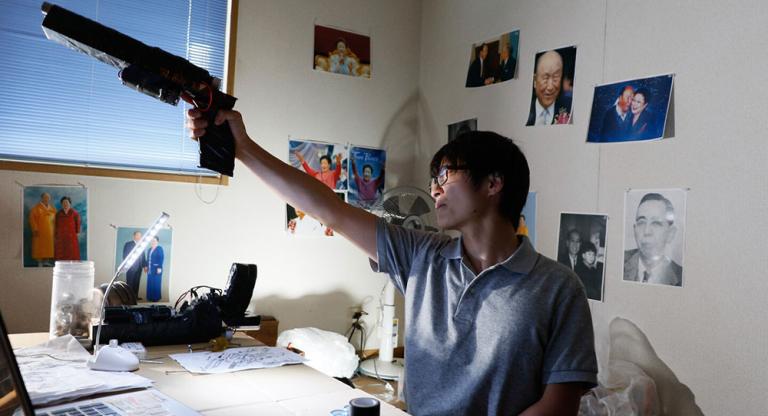Ousmane Sembène’s second feature, Mandabi (1968), was adapted from his novella Le Mandat, which won him the literature prize at the First World Festival of Negro Arts, following the independence of Senegal from France in 1960. Sembène had moved to France during the Second World War, but returned to Senegal following independence and began making films, the shorts Borom Sarret (1963) and Niaye (1964) preceding his first feature, the masterpiece Black Girl (1966). He arrived at filmmaking by way of Marxian and Pan-Africanist critiques of capital and labor, as well as an ongoing literary career.
His public opposition to Senegalese President Léopold Sedar Senghor’s vision for the newly independent state premised on “Africaniz[ing] the Europeans” rather than Africanizing the top posts in the country, spoke to an uncompromising defiance against the vestiges of the French empire and the inevitable emergence of neocolonialism. As African nation-states were consolidating some semblance of independence in the struggle for freedom, the predatory grasp of colonial forces was changing its form to avoid detection. As then President of Ghana Kwame Nkrumah states, “The essence of neo-colonialism is that the purportedly independent state has all the outward trappings of international sovereignty.” Because of global capitalist interests and Senghor’s pro-francophile politics of modernity, Sembène’s film was subject to major criticism and censorship, not only by the French government but also within Senegal under Senghor’s administration.
Mandabi was the first film ever produced in Wolof (or any African language), the lingua franca of Senegal’s several disparate language groups and Sembène’s mother tongue. The film follows the unemployed patriarch Ibrahima Dieng (Makuredia Guey) as he embarks on a taxing journey riddled with bureaucratic corruption, sketchy backroom dealings, and desperate pleas for handouts as he tries to cash a money order sent to him by his nephew, Abdou, who has been working in Paris as a street sweeper. Sembène himself makes a cameo appearance as the public writer who reads Abdou’s letter aloud to Ibrahima at the post office. The money order for 25,000 francs is to be saved for Abdou and his mother with a remaining 2,000 francs for Ibrahima, his two wives, and children. The film’s comedic style, shaped by Wolof neologisms and African orality, complements a postcolonial satire about Senegal’s internal elite politics, which in turn is perfectly balanced against Sembène’s social-realist filmic approach. Sembène’s cinematic language would remain dedicated to safeguarding parts of African identity that may have been buried to linguistic imperialism.
Mandabi screens on Thursday, March 14th as part of their Ousmane Sembène restrospective.
Previously:
Mandabi screens through September 19 at Film Forum in a digital restoration as part of their Ousmane Sembène retrospective.





